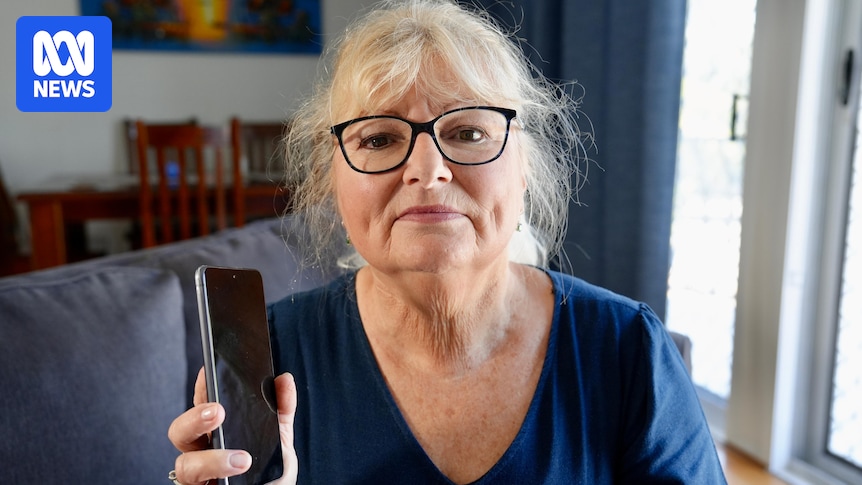
Two Optus customers have accused the embattled telecommunications company of trapping them in a complaint “merry-go-round,” as more people demand compensation over lengthy service outages and other serious issues. The Telecommunications Industry Ombudsman (TIO) has revealed data indicating that Optus and other telcos are “not meeting the needs of people with complaints that take more time and nuance to resolve.” Researchers have noted that the telecommunications sector rates poorly compared to the banking and energy industries.
Judith McLaughlin, a long-time Optus customer, spent nearly two months pleading with the company to resolve mobile phone coverage issues that left her unable to make or receive calls at her Gold Coast home. This incident follows a significant network outage in September, which left hundreds unable to call emergency services, prompting internal changes and ongoing investigations at Optus.
Customer Service Woes and Internal Changes
Optus has been under intense scrutiny after the September network outage, initially linked to four deaths, although later statements from police suggested the outages were unlikely to have been a factor. Offshore call center workers reportedly ignored warnings from customers about their inability to call emergency services, leading to sweeping internal changes.
In response to these challenges, Optus considered creating a new executive position, a customer advocate, to address systemic issues impacting customers. However, the company later abandoned this plan, opting instead to create multiple customer advocacy roles.
Personal Stories of Frustration
Judith McLaughlin, a loyal Optus customer for two decades, found herself without mobile reception at her home in Nerang, Gold Coast. “I couldn’t make any calls. I couldn’t receive any calls at home,” she recounted. Her ordeal involved repeated calls to Optus, lengthy wait times, and a lack of resolution, leading her to purchase a Telstra SIM card to regain connectivity.
Ms. McLaughlin was eventually informed that a nearby mobile tower had been “permanently decommissioned,” and Optus suggested she find another provider, refunding her $110. “I contemplated making a complaint to the ombudsman but I was so sick of it all,” she said, questioning whether Optus misled her and other customers.
Industry-Wide Challenges and Comparisons
According to the latest quarterly statistics from the TIO, complaints about Optus have increased by 5.7%, with a notable 16.7% spike in compensation demands for stress and inconvenience due to service outages. The Consumer Policy Research Centre’s Chandni Gupta highlighted that the telco sector fares poorly compared to banking and energy sectors.
“When things fail with the telco’s service, there are very few consequences for the telco, but very real ones for customers,” Ms. Gupta noted.
Despite these challenges, Luke Coleman from the Australian Telecommunications Alliance questioned the research, stating, “Complaints about telcos are at 20-year lows.”
Regulatory and Consumer Advocacy
The telco sector has faced pressure to improve standards, with more than 20 consumer groups rejecting its consumer protection code. The Australian Communications and Media Authority (ACMA) has given the sector until the end of November to enhance the code, focusing on responsible selling, credit assessments, disconnection, and mobile coverage information.
Carol Bennett, CEO of the Australian Communications Consumer Action Network (ACCAN), has called for an investigation by the consumer watchdog. “The minimum Optus could do is put in place a consumer advocate … to restore public faith and trust,” she emphasized.
Future Implications and Industry Reactions
Consumer groups argue that the telco sector should face tougher penalties for prolonged disputes, similar to the banking and finance sectors, where companies incur hefty penalties when complaints escalate to the ombudsman.
“You have appropriate fines that are levelled at the providers when they don’t deliver,” Ms. Bennett stated.
However, Mr. Coleman argued that the industry is already accountable to the TIO, its consumer protection code, and consumer law. “Customers have the ultimate power, the ability to walk away from their telco,” he said.
The Australian government currently has legislation before parliament to increase penalties for telcos breaching industry rules, allowing the ACMA to take immediate action over any breaches.
As for Judith McLaughlin, she has no regrets about leaving Optus, stating that the company needs to ensure those in charge are aware of customer issues. “People will vote with their feet,” she concluded.







